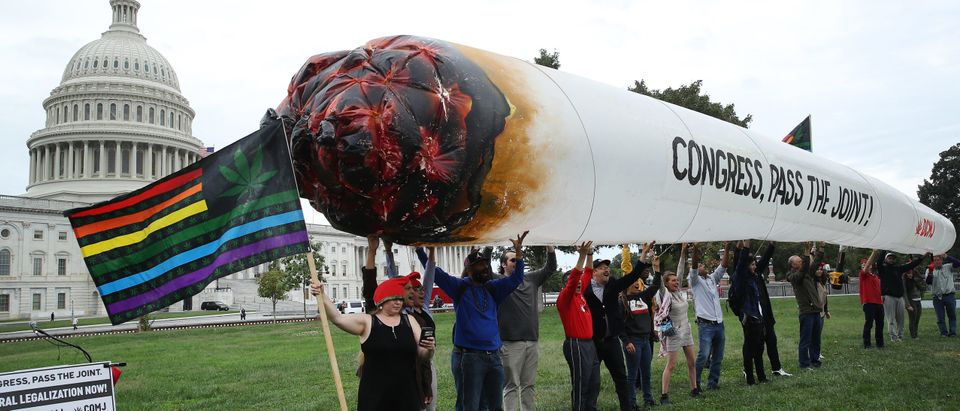The House of Representatives voted Friday to end a federal ban on the possession, growth and distribution of marijuana.
The Marijuana Opportunity Reinvestment and Expungement (MORE) Act, introduced by Democratic New York Rep. Jerry Nadler, removes the drug from a list created by the Controlled Substances Act, and creates an excise tax on marijuana and other cannabis products. Marijuana is currently listed as a Schedule I drug under the Controlled Substances Act, meaning that it has “no currently accepted medical use and a high potential for abuse.” This classification has been heavily contested by advocates, who argue that it fails to take into account reported medicinal benefits.
The legislation “is long overdue… and would reverse decades of failed federal policies based on the criminalization of marijuana. It would also take steps to address the heavy toll these policies have taken across the country, particularly among communities of color,” Nadler said in a floor speech.
Criminal penalties for marijuana offenses, and the resulting collateral consequences, are unjust and harmful to our society. The #MOREAct comprehensively addresses these injustices. I am proud to have introduced this bill.pic.twitter.com/ddzbE6TaYM
— Rep. Nadler (@RepJerryNadler) April 1, 2022
Although support for decriminalization has become bipartisan in recent years, only three Republicans voted with 217 Democrats to pass Nadler’s bill. Republican South Carolina Rep. Nancy Mace, who introduced a different legalization bill in November, told The Hill that Democrats’ refusal to allow amendments to the legislation made it unattractive to Republicans.
“I have incentives for states not to sell to kids or market or advertise to kids,” she said of her legislation. “My tax is a lot lower at 3 percent. Theirs is eight after three years, and we all know that you’re going to guarantee illicit markets if you make taxes too high.”
The MORE Act also requires the Government Accountability Office and Small Business Administration to encourage marijuana sales by businesses run by “socially and economically disadvantaged individuals [and] individuals adversely impacted by the War on Drugs,” while considering “the racial, ethnic, economic and gender composition of the eligible State locality.”
Republican Ohio Rep. David Joyce cited tax hikes, as well as the racial provisions, in a letter explaining his opposition.
The MORE Act “plac[es] an additional tax on legal operators to pay for the cost of industry access for illegal operators,” he wrote to House GOP colleagues.
Senate Majority Leader Chuck Schumer has proposed separate legislation to decriminalize marijuana. His bill would send all regulatory decisions to the states, and expunge federal convictions for non-violent possession or distribution of the drug. (RELATED: Sen. Chuck Schumer Shares A Message For Those Celebrating 4/20)
Both President Joe Biden and Vice President Kamala Harris support the federal decriminalization of marijuana, although both politicians have a history of supporting legal crackdowns. The White House initially announced that recent marijuana use would not be a barrier to employment in the Biden administration, but reportedly suspended or reassigned several staffers who admitted to previous consumption.


